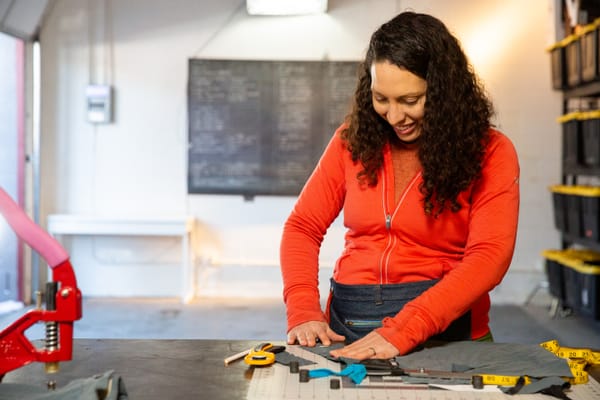Storytelling on Stage
When it comes to giving talks, here are the major things I try to keep in mind:
- It doesn't matter if the audience is 5 or 500; they are all there to hear YOU speak, and are eager to learn.
- Instead of thinking about your speech like it's some huge event that everyone is going to judge you on, think of it like a story; it'll calm your nerves that way. The audience is just a group of friends you may or may not know yet, and you're telling them about an experience that you had. It's like being at the café with your very best friends, telling them about that ridiculous thing that happened to you in the store the other day. Except you're on a stage with a spotlight, and you're talking about technology... But I promise, it's a lot less scary when you think of it as a story!
- Think of each slide as a section of your story. Piece your slides together in such a way that they almost tell the story by themselves, and then all you need to do is add a bit of life to it. Some people can get away without writing any notes for their slides; I tend to write a line or two about the words and phrases that are key to getting my point across. What you want to avoid is writing out word for word what you want to say (You will be tempted! Don't fall for it!) - I assure you that you'll sound a whole lot more natural if you keep the notes to a minimum and let the slides take care of the big chunks of the story line for you.
- Given #3, pay very careful attention to how you make your slides. Not too much text, not too much color, but just enough information to help you remember what you're talking about and help the audience stay on track. I hate to say it, but most people don't care about your slides. They care about the experience they're going to have by listening to you.
- Practice, but not too much, and in careful ways. I hate practicing my slides. No, really, I hate it. I'm terrified of practicing in front of people, because I don't want them to judge me too harshly... except if I don't practice I'll totally bomb it on stage and I'll kick myself for not practicing more. (Trust me, this happened a LOT at the beginning of my career.) It's great to practice in front of a mirror, but for me it's best not to do it more than once. The feedback you'll get from practicing in front of a mirror/stuffed animals/pets/etc will be what you need to make the perfect talk for yourself, whereas practicing in front of other people will give you what you need to make the perfect talk for everyone else.
- Given #5, I like to practice by giving the talk in smaller sessions. Give it at work, at a local meetup, even in front of a trusted friend or relative. The smaller audience will definitely feel more like that cafe setting, and the feedback you get will absolutely translate to the larger stage.
- Have fun!! I can't stress this enough. The process of preparing the talk will be agonizing - worrying about your slides, making sacrifices to the demo gods, and running through your talk over and over again will take a toll on your psyche. And then the moment leading up to the talk will probably make you want to throw up (or some equally unattractive alternative). But! BUT! After the first 30 seconds, as you get into the groove that you've prepared for, you'll hopefully realize that you - yes YOU! - are the star of the show. There's something incredibly powerful about that moment. And then as you wrap up, get that applause, and get emails from people telling you how grateful they are that they got to see you speak... well, it's honestly the best feeling in the world. That's where the fun is. If you don't feel that fun, or the cost is greater than the reward, then it's 100% okay to let it go. (But please don't give it up until you try :-D)



